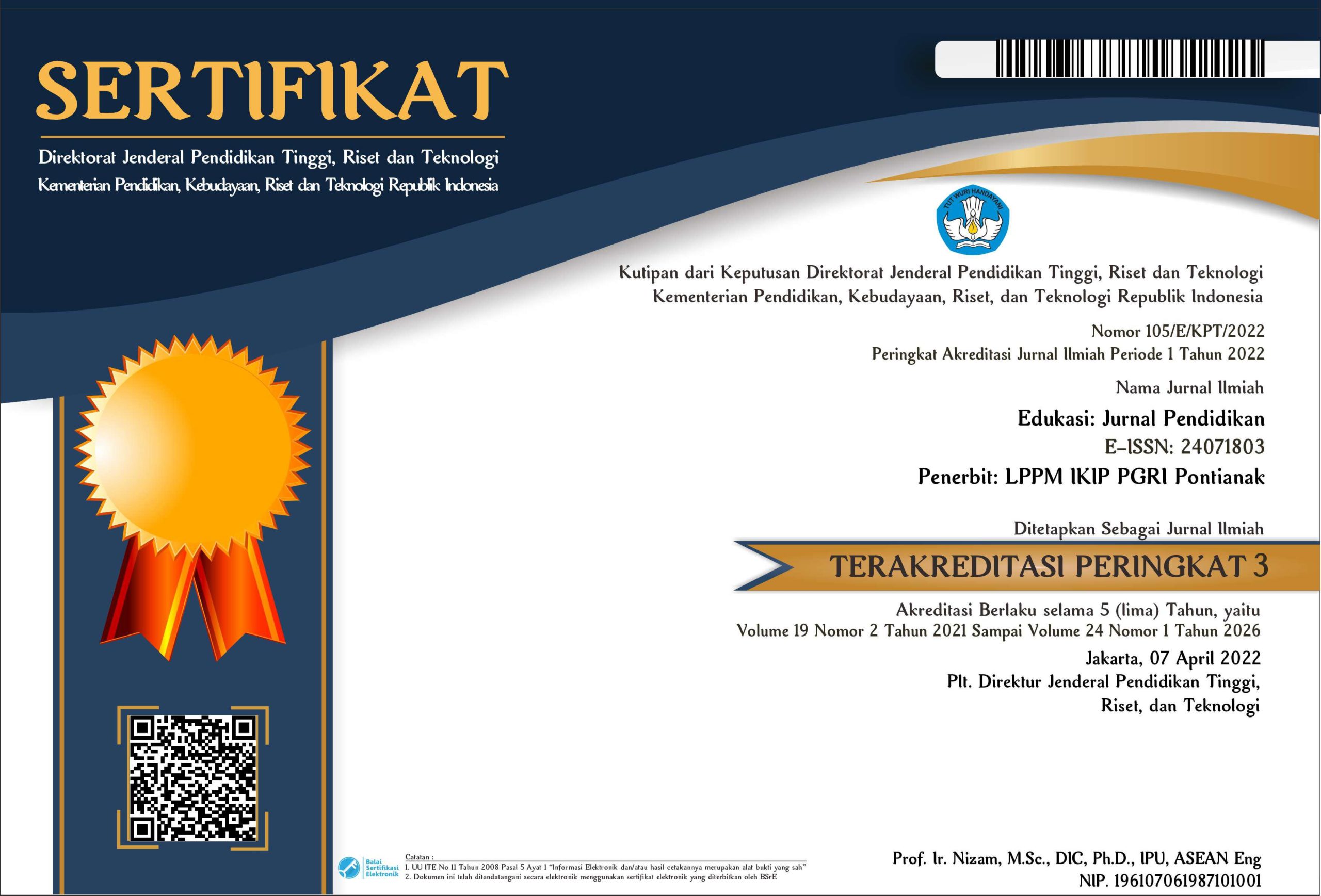Pengaruh Pembelajaran Kooperatif Tipe Teams Game Tournament Berbantuan Media Teka-Teki Silang terhadap Motivasi Siswa pada Materi Koloid
DOI:
https://doi.org/10.31571/edukasi.v16i1.779Keywords:
teams game tournament, motivasi siswa, teka-teki silangAbstract
Penelitian bertujuan untuk mengetahui pengaruh  pembelajaran kooperatif tipe teams game tournament  berbantuan media teka-teki silang terhadap motivasi belajar siswa pada materi Koloid. Penelitian menggunakan metode eksperimen dengan rancangan penelitian nonequivalent control group design. Populasi penelitian adalah siswa kelas XI IPA yang berjumlah 120 siswa. Sampel penelitian yaitu siswa kelas XI IPA 1 dan XI IPA 3 yang berjumlah 80 siswa menggunakan teknik purposive sampling. Teknik pengumpulan data menggunakan komunikasi langsung dan observasi langsung. Alat pengumpul data menggunakan panduan wawancara dan pedoman observasi. Hasil penelitian menunjukkan bahwa: (1) Model pembelajaran kooperatif tipe teams game tournament berpengaruh terhadap motivasi siswa sebesar 96,64%; (2) Terdapat perbedaan motivasi belajar siswa yang diajarkan dengan teams game tournament berbantuan media teka-teki silang dan metode ceramah pada materi Koloid; dan (3) Nilai effect size motivasi siswa sebesar 1,83.
Downloads
Downloads
Published
How to Cite
Issue
Section
License
Authors who publish in this journal agree to the following terms:
- Authors retain copyright and grant the journal the right of first publication with the work simultaneously licensed under a Creative Commons Attribution License (CC-BY-NC) that allows others to share the work with an acknowledgment of the work's authorship and initial publication in this journal.
- Authors are able to enter into separate, additional contractual arrangements for the non-exclusive distribution of the journal's published version of the work (e.g., post it to an institutional repository or publish it in a book), with an acknowledgment of its initial publication in this journal.
- Authors are permitted and encouraged to post their work online (e.g., in institutional repositories or on their website) prior to and during the submission process, as it can lead to productive exchanges, as well as earlier and greater citation of published work.

 Download: 263
Download: 263


















